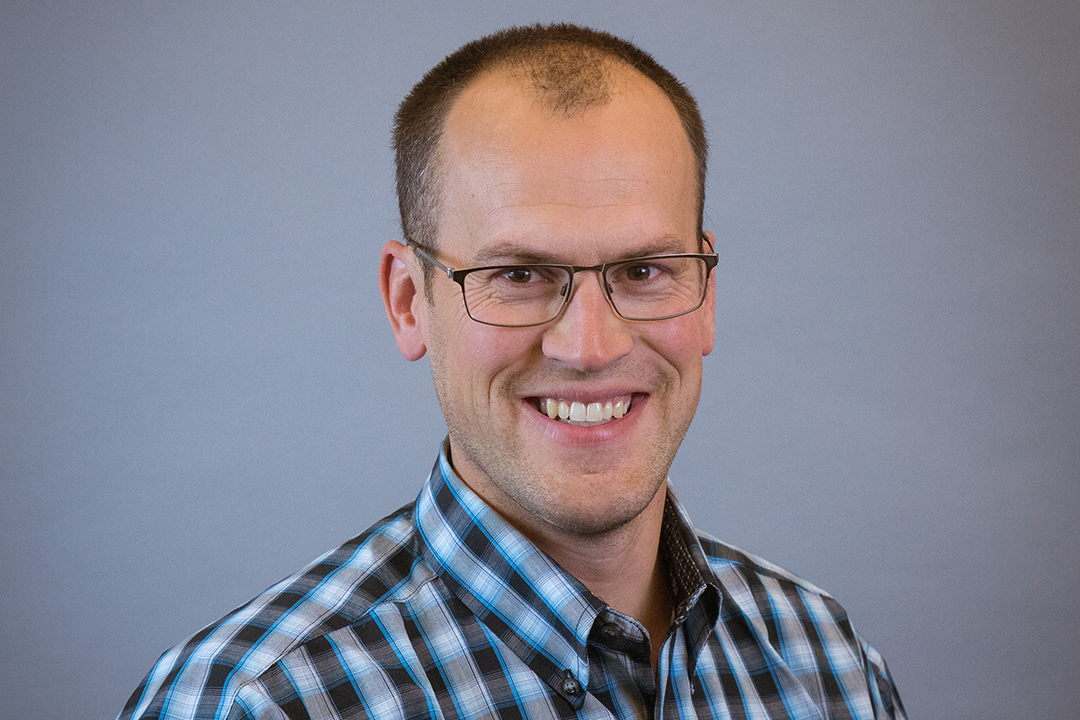
Animal health and food safety in hands of vets
Victor Kernaleguen first started working at a veterinary clinic when he was just 12 years old. His boss was his aunt, Dr. Anne Kernaleguen — a 1978 graduate of the Western College of Veterinary Medicine (WCVM) — who owned and operated a mixed animal practice in Stoughton, Sask.
By HenryTye Glazebrook“It [veterinary medicine] just drew me in naturally,” says Kernaleguen. “I liked that veterinarians got to go out and see all sorts of different things and help people out with their problems. Helping people out and fixing things up so they didn’t have any more issues was a really rewarding idea to me.”
While growing up on his family’s mixed farm near St. Brieux, Sask., Kernaleguen helped to raise chickens, pigs, beef and dairy cattle. That experience, along with the work he did at his aunt’s clinic, helped him gain a clear understanding of all the good things a strong farm can provide to the community and all the ways that a knowledgeable veterinarian can ensure animals stay healthy.
Kernaleguen went on to follow in his aunt’s footsteps, graduating from the WCVM in 2008. He’s now seven years into his life as owner-operator of Gateway Veterinary Services in Melfort, Sask. The decision to build a practice in his home province, he says, was made as much to maintain close ties with his family as it was to contribute in his own way to the ongoing growth of Saskatchewan’s robust agricultural community.
“If we don’t have a strong set of vets trained and working in Saskatchewan, then our food that we produce won’t be anywhere near as safe or as well taken care of as it could be,” says Kernaleguen.
“We have a huge role to play in herd health and safety of the food that’s produced for all the people in Saskatchewan and all the people in the world that we ship it to. I don’t think that people realize that if we didn’t have veterinarians, then all of a sudden the animals aren’t being taken care of and you don’t have the animals to feed you.”
Kernaleguen credits his time at WCVM for making him the well-rounded veterinarian he is today, in part because of the sheer breadth of knowledge he gained and the extensive contacts he knows he can still rely on to lend an ear when a client brings in something especially tricky.
Just as important, however, were those unanticipated moments that really hammered home the reality of animal health both inside and out of the agricultural production cycle.
He remembers exploring feedlots in Alberta as part of the WCVM’s bovine club, walking alongside cattle and seeing firsthand just how closely those animals were living with one another, and describes the experience as a revelatory step in his comprehension of the importance of preventive health.
“You don’t really understand it until you’re out there, how much one animal interacts with the others,” he says. “Ensuring the health of the animals in the whole community or area is so vital to keeping everything healthy all the way through.
“It’s so much cheaper to prevent an issue than it is to treat it.”
It’s not uncommon for Kernaleguen to find himself driving through Saskatoon, given his role as president of the Saskatchewan Veterinary Medical Association. Even on densely-scheduled trips, he tries to make a point of revisiting his old college — a place he still refers to as “The School” even years after leaving behind its halls.
Sometimes he’s there just to quickly wave hello to old friends, sometimes it’s to shoulder tap the researchers and professors who trained him and gain new insights on his cases.
“I drop by there and ask questions or just chat with a prof that I haven’t seen in a long time. It’s so neat to have that so close to home.”